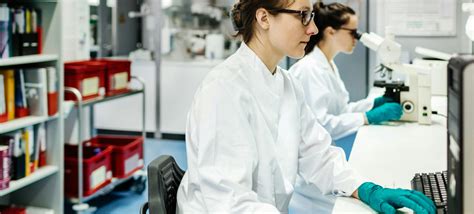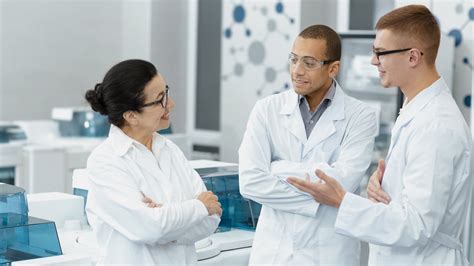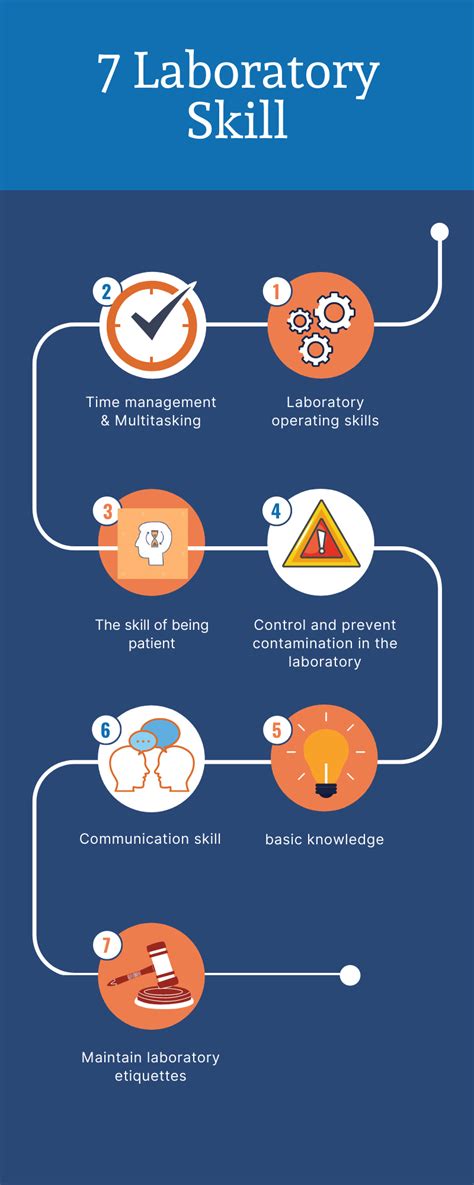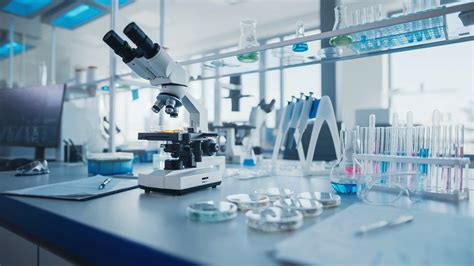Intro
Unlock your potential as a Medical Laboratory Technician with these 5 expert tips. Discover how to excel in lab testing, specimen analysis, and patient diagnosis. Improve your lab skills, stay updated on medical technology, and enhance patient care. Boost your career with these actionable strategies and become a vital part of the healthcare team.
As a medical laboratory technician, you play a vital role in the healthcare system, working behind the scenes to analyze samples and provide crucial information to doctors and patients. To excel in this field, you'll need to possess a combination of technical skills, attention to detail, and strong communication abilities. Here are five ways to excel as a medical laboratory technician:

Develop Strong Technical Skills
To succeed as a medical laboratory technician, you'll need to have a solid foundation in laboratory procedures and techniques. This includes proficiency in operating various laboratory equipment, such as microscopes, centrifuges, and automated analyzers. You should also be familiar with laboratory safety protocols and procedures for handling and disposing of hazardous materials.
In addition to technical skills, you should also have a strong understanding of laboratory mathematics and statistics. This includes being able to perform calculations, interpret data, and identify trends and patterns. By developing strong technical skills, you'll be able to accurately analyze samples and provide reliable results.
Key Technical Skills for Medical Laboratory Technicians
• Operating laboratory equipment, such as microscopes and automated analyzers • Performing laboratory tests and procedures, such as blood typing and urinalysis • Handling and disposing of hazardous materials • Laboratory mathematics and statistics • Quality control and quality assurance procedures
Improve Your Communication Skills
As a medical laboratory technician, you'll work closely with doctors, nurses, and other healthcare professionals to provide accurate and timely laboratory results. Strong communication skills are essential for conveying complex laboratory information in a clear and concise manner.
This includes being able to explain laboratory results to patients and healthcare providers, as well as communicating effectively with colleagues and supervisors. By improving your communication skills, you'll be able to build strong relationships with healthcare professionals and provide excellent patient care.

Key Communication Skills for Medical Laboratory Technicians
• Verbal and written communication skills • Interpersonal skills, including empathy and active listening • Ability to explain complex laboratory information in a clear and concise manner • Conflict resolution and negotiation skills
Stay Current with Continuing Education
The field of laboratory medicine is constantly evolving, with new technologies and techniques emerging regularly. To stay current and excel as a medical laboratory technician, it's essential to pursue ongoing education and training.
This can include attending conferences and workshops, participating in online courses and webinars, and reading industry publications. By staying current with the latest developments in laboratory medicine, you'll be able to provide the best possible care for patients and stay ahead of the curve in your career.
Key Areas for Continuing Education
• New technologies and equipment, such as next-generation sequencing and mass spectrometry • Emerging diseases and conditions, such as COVID-19 and antimicrobial resistance • Laboratory safety and quality control procedures • Regulatory compliance and accreditation standards
Develop Strong Analytical and Problem-Solving Skills
As a medical laboratory technician, you'll be responsible for analyzing samples and interpreting laboratory results. Strong analytical and problem-solving skills are essential for identifying trends and patterns, troubleshooting instrument malfunctions, and resolving complex laboratory problems.
By developing your analytical and problem-solving skills, you'll be able to provide accurate and reliable laboratory results, even in the face of challenging or unusual samples.

Key Analytical and Problem-Solving Skills for Medical Laboratory Technicians
• Critical thinking and analytical skills • Ability to identify trends and patterns in laboratory data • Troubleshooting and problem-solving skills • Attention to detail and quality control procedures
Maintain a Strong Work Ethic and Professionalism
Finally, to excel as a medical laboratory technician, you'll need to maintain a strong work ethic and professionalism. This includes being reliable, punctual, and dedicated to providing high-quality laboratory services.
By demonstrating a strong work ethic and professionalism, you'll be able to build trust with healthcare professionals and patients, and advance in your career.
Key Elements of a Strong Work Ethic and Professionalism
• Reliability and punctuality • Attention to detail and quality control procedures • Respect for patients and healthcare professionals • Continuous learning and professional development

By following these five tips, you'll be well on your way to excelling as a medical laboratory technician. Remember to stay focused on developing your technical skills, improving your communication abilities, staying current with continuing education, developing strong analytical and problem-solving skills, and maintaining a strong work ethic and professionalism.
What are the key technical skills for medical laboratory technicians?
+Key technical skills for medical laboratory technicians include operating laboratory equipment, performing laboratory tests and procedures, handling and disposing of hazardous materials, laboratory mathematics and statistics, and quality control and quality assurance procedures.
How can I improve my communication skills as a medical laboratory technician?
+You can improve your communication skills by practicing verbal and written communication, developing interpersonal skills such as empathy and active listening, and learning to explain complex laboratory information in a clear and concise manner.
Why is continuing education important for medical laboratory technicians?
+Continuing education is essential for medical laboratory technicians to stay current with the latest developments in laboratory medicine, including new technologies and techniques, emerging diseases and conditions, and regulatory compliance and accreditation standards.
We hope this article has provided you with valuable insights and tips for excelling as a medical laboratory technician. If you have any questions or comments, please don't hesitate to share them below.
